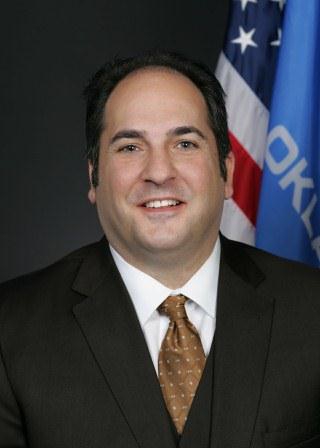Key funding piece in civil forfeiture suspended indefinitely by federal government
 Sen. Kyle Loveless
Sen. Kyle Loveless
A legislator working to improve Oklahoma’s forfeiture laws said the U.S. Department of Justice’s recent decision to suspend the Federal Equitable Sharing Program was a step in the right direction, but reform of state statutes is still needed. The federal program allowed state and local law enforcement agencies to partner with federal law enforcement in prosecuting civil asset forfeitures under federal law instead of using state law. The program also allowed local agencies to receive up to 80 percent of the proceeds from those forfeitures.
“I am working to reform Oklahoma’s state laws regarding forfeiture to make them align with the tenets of our constitution and proper due process,” said Sen. Kyle Loveless, R-Oklahoma City. “The Federal Equitable Sharing Program is one piece of a much larger issue with forfeiture overall. I am pleased that this program has been suspended; however, we must reform our state laws as we have seen the whims of Washington DC change overnight.”
According to data from Oklahoma Watch, more than 100 Oklahoma law enforcement agencies received $47.5 million in equitable sharing funds in the last decade, with the Oklahoma Highway Patrol receiving the vast majority of the money. The Department of Justice has criticized some of the Highway Patrol’s spending of those funds.
“Civil forfeiture is rife with abuse. The more attention that is brought to the practice, the more stories that have come to light. There are several parts to my reform package but the most critical is removing the direct profit agencies receive from forfeitures,” Loveless said.
Last session, Loveless introduced Senate Bill 838, the Personal Asset Protection Act.
“State legislators from Florida to Ohio to California should take notice of law enforcement’s reaction to the DOJ’s announcement. Many police, sheriffs and prosecutors want to circumvent state laws because outsourcing forfeiture litigation to the federal government is lucrative. State lawmakers should enact an anti-circumvention provision that respects federalism and refocuses law enforcement’s attention on stopping crime by allowing only seizures greater than $50,000 to be forfeited under federal law,” said Lee McGrath, Legislative Council for the Institute for Justice.
“As more and more Oklahomans hear about the experiences of law-abiding citizens who’ve had their property seized, they recognize current forfeiture practices as unconstitutional and un-American. This is an unjust system that allows innocent people’s property to be taken even though they were not charged or convicted of any crime. I am looking forward to working with members of law enforcement and my legislative colleagues to get a package of reforms to the governor’s desk this coming legislative session,” said Loveless.
 Oklahoma Senate
Oklahoma Senate

